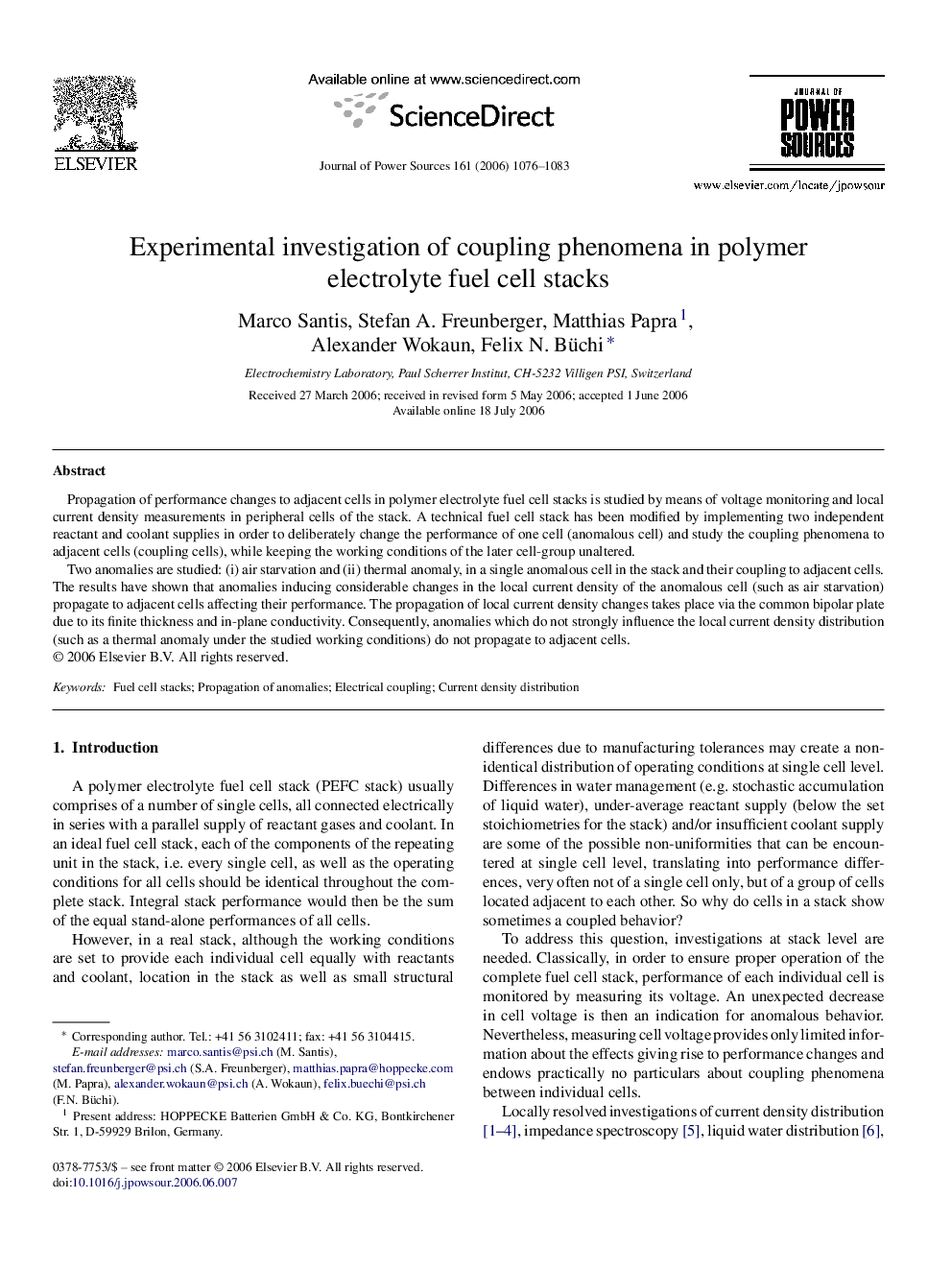| Article ID | Journal | Published Year | Pages | File Type |
|---|---|---|---|---|
| 1292056 | Journal of Power Sources | 2006 | 8 Pages |
Propagation of performance changes to adjacent cells in polymer electrolyte fuel cell stacks is studied by means of voltage monitoring and local current density measurements in peripheral cells of the stack. A technical fuel cell stack has been modified by implementing two independent reactant and coolant supplies in order to deliberately change the performance of one cell (anomalous cell) and study the coupling phenomena to adjacent cells (coupling cells), while keeping the working conditions of the later cell-group unaltered.Two anomalies are studied: (i) air starvation and (ii) thermal anomaly, in a single anomalous cell in the stack and their coupling to adjacent cells. The results have shown that anomalies inducing considerable changes in the local current density of the anomalous cell (such as air starvation) propagate to adjacent cells affecting their performance. The propagation of local current density changes takes place via the common bipolar plate due to its finite thickness and in-plane conductivity. Consequently, anomalies which do not strongly influence the local current density distribution (such as a thermal anomaly under the studied working conditions) do not propagate to adjacent cells.
